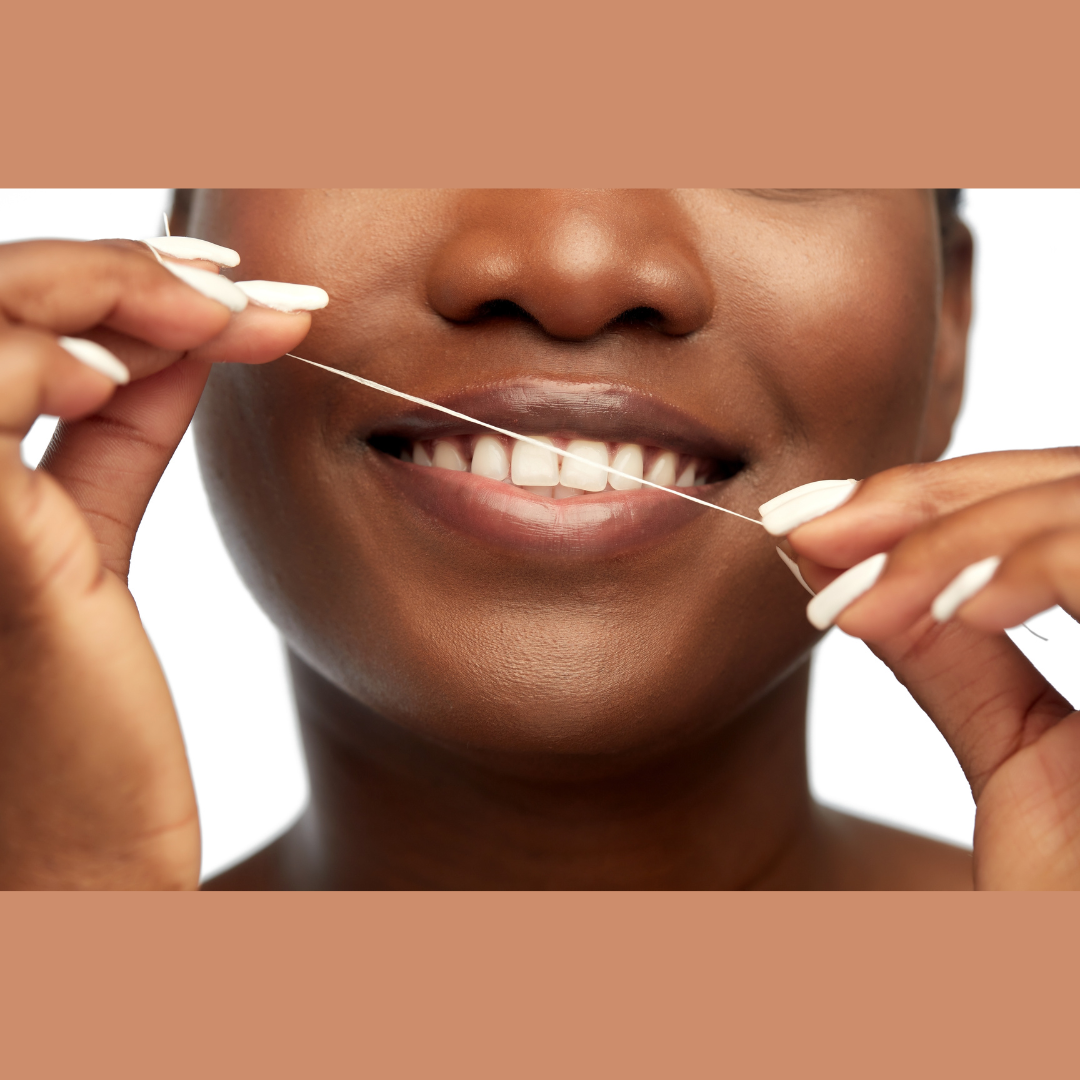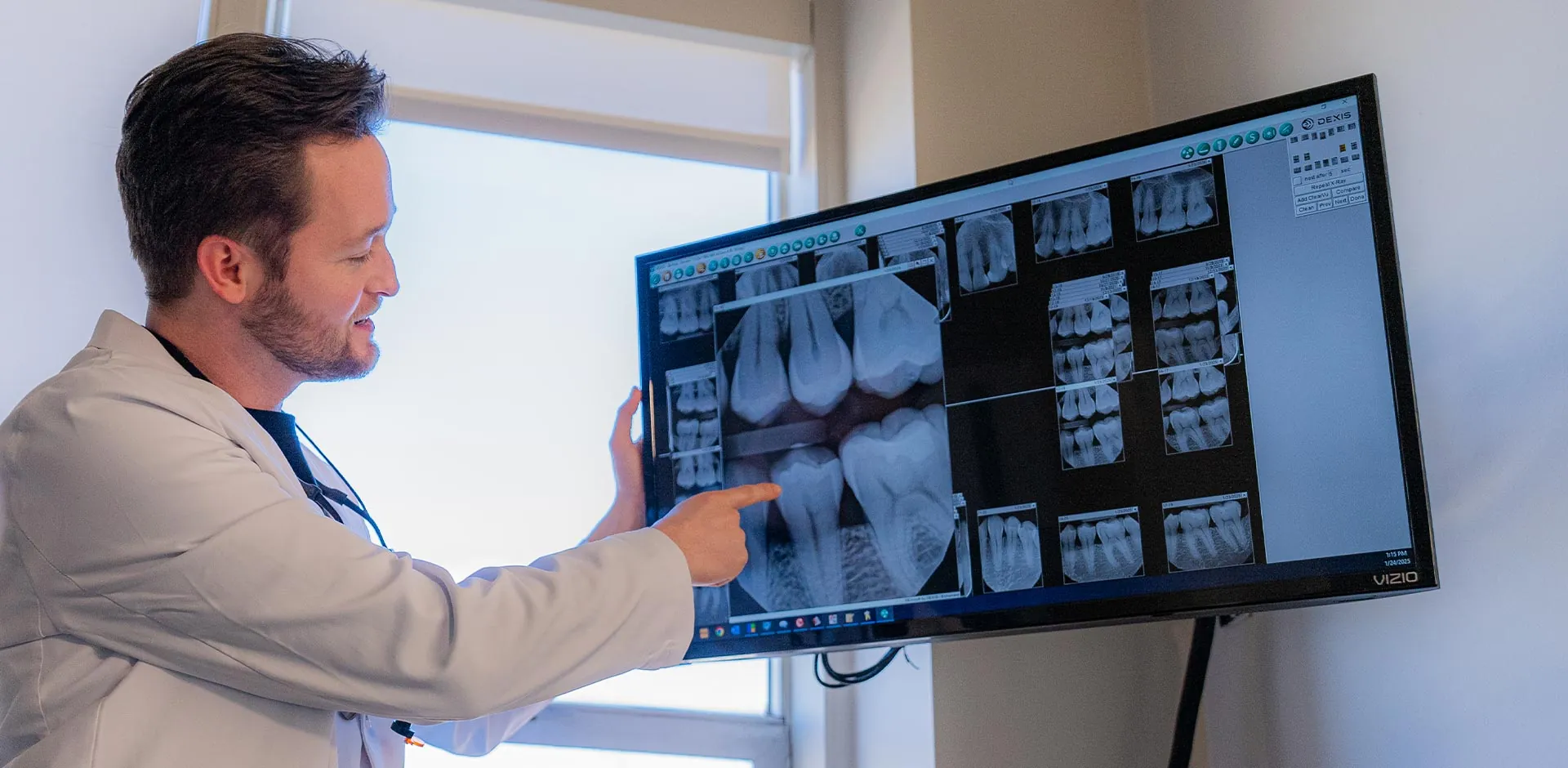
Okay you finished your day and the last thing you want to do is floss your teeth. We get it. Another step in an already time consuming process. But, what if I told you that flossing your teeth is one of the most important things you can do to keep your teeth. Yep that’s right, you only need to floss the teeth you want to keep - haha- no seriously let’s talk about it. 🙂
Dental Exams Are Two Part
- We look inside your mouth (yes obvious, I know)
- When we visualize your teeth in your mouth, we look for cavities on the biting surfaces of your teeth. We are also checking your gum health, your airway, and potential signs of cancer.
- We take a look at your x-rays
- When we take a look at your x-rays, we are able to see cavities that are forming between your teeth. X-rays allow us to see "into" the teeth for potential cavities, pathologies, or other various conditions that our eyes alone cannot detect.
Why Did I Bring This Up
Well, toothbrushes are only able to reach mostly the visible aspects of your teeth. The mechanical action of your toothbrush along with the ingredients in your toothpaste allows for the removal of plaque and bacteria. The problem with brushing alone… is you don't remove the food particles between your teeth.
Think about washing your hands but keeping your fingers together - that’s like brushing without flossing.
The visible surfaces are clean, but the in between portions still remain dirty. Just like your hands, if you continue to ignore the nooks and crannies the “dirt” (food/bacteria) accumulates and disease processes begin.
Not flossing impacts your teeth AND your gums. Leaving food between your teeth leaves you more susceptible to cavities and gum disease. Check out what the American Dental Association has to say about flossing - Click Here.
The bad bacteria feed on the food particles and begin the process of destroying your gums and the bone that holds the teeth in place. Sometimes people are more predisposed to cavities, sometimes gum disease, and sometimes both.
Okay so why is this important?
Well, over time your body is not able to combat the disease process in your mouth compared to when you were younger. We see people in their teens and early twenties who are not flossing, but the impact doesn't seem as severe…so why change?
Well, as we get older the scale tips and the body needs more help removing bacteria. So, start that flossing habit young. Get into the routine and we hope your teeth last a lifetime!
I Don't Have Cavities - So Why Should I Floss?
We are often asked this question. "I don't have cavities, I never have, so why does this matter?". Well, at some point as you age it will catch up to you. You will either start to get cavities, gum disease, or both. So, we would love to start the habit as soon as possible.
Dr. Crofts and I typically like to floss before we brush our teeth. Either way, it shouldn't truly make a difference. The best floss you can use is string floss.
What Is The Proper Way To Floss?
Gently push the floss between your teeth, pull away from you, move up and down, and then towards you and move up and down. This allows you to scrub both sides of your tooth. Do this for each tooth in your mouth. You will be quite surprised at how much is stuck between your teeth. Removing the debris between your teeth before bed helps you fight cavities and gum disease.
For a visual see the video at the bottom of this article!
Thanks for reading and as always feel free to reach out to use with any questions! And remember - FLOSS IS BOSS.




